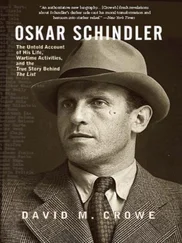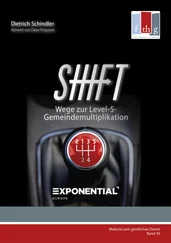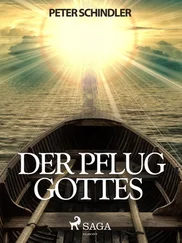All the rest were to be moved into other cities in the Government General, into Warsaw or Radom, Lublin, or Czestochowa. Jews could immigrate voluntarily to the city of their choice as long as they did it before August 15. Those still left in the city after that date would be trucked out with a small amount of luggage to whatever place suited the administration. From November 1, said Hans Frank, it would be possible for the Germans of Cracow to breathe “good German air,” to walk abroad without seeing the streets and lanes “crawling with Jews.”
Frank would not manage that year to reduce the Jewish population to quite so low a level; but when his plans were first announced, there was a rush among the Jews of Cracow, especially among the young, to acquire skilled qualifications. Men like Itzhak Stern, official and unofficial agents of the Judenrat, had already developed a list of sympathizers, Germans to whom they could appeal. Schindler was on that list; so was Julius Madritsch, a Viennese who had recently managed to get himself released from the Wehrmacht and taken up the post of Treuhänder of a plant manufacturing military uniforms.
Madritsch could see the benefits of Armaments Inspectorate’s contracts and now intended to open a uniform factory of his own in the suburb of Podgórze. In the end he would make an even larger fortune than Schindler, but in the annus mirabilis of 1940 he was still on a salary. He was known to be humane—that was all. By November 1, 1940, Frank had managed to move 23,000 Jewish volunteers out of Cracow. Some of them went to the new ghettos in Warsaw and Łódź. The gaps at table, the grieving at railway stations can be imagined, but people took it meekly, thinking, We’ll do this, and that will be the brunt of what they ask. Oskar knew it was happening, but, like the Jews themselves, hoped it was a temporary excess.
That year would very likely be the most industrious of Oskar’s life—a year spent building the place up from a bankrupt manufactory to a company government agencies could take seriously. As the first snows fell, Schindler noticed and was irritated when, on any given day, 60 or more of his Jewish employees would be absentees. They would have been detained by SS squads on the way to work and employed in clearing snow. Herr Schindler visited his friend Toffel at SS headquarters in Pomorska Street to complain.
On one day, he told Toffel, he had 125 absentees.
Toffel confided in him. “You’ve got to understand that some of these fellows here don’t give a damn about production. To them it’s a matter of national priority that Jews be made to shovel snow. I don’t understand it myself… it’s got a ritual significance for them, Jews shoveling snow. And it’s not just you, it’s happening to everyone.” Oskar asked if all the others were complaining too. Yes, said Toffel. However, he said, an economic big shot from the SS Budget and Construction Office had come for lunch in Pomorska and said that to believe the Jewish skilled worker had a place in Reich economics was treasonable. “I think you’re going to have to put up with a lot of snow shoveling yet, Oskar.”
Oskar, for the moment, assumed the stance of the outraged patriot, or perhaps of the outraged profiteer. “If they want to win the war,” said Oskar, “they’d have to get rid of SS men like that.”
“Get rid of them?” asked Toffel. “For Christ’s sake, they’re the bastards who’re on top.”
As a result of such conversations, Oskar became an advocate of the principle that a factory owner should have unimpeded access to his own workers, that these workers should have access to the plant, that they should not be detained or tyrannized on their way to and from the factory. It was, in Oskar’s eyes, a moral axiom as much as an industrial one. In the end, he would apply it to its limit at Deutsche Email Fabrik.
Some people from the big cities—from Warsaw and Łódź with their ghettos and Cracow with Frank’s commitment to making it judenfrei— went to the countryside to lose themselves among the peasants. The Rosner brothers, Cracovian musicians who would come to know Oskar well, settled in the old village of Tyniec. It was on a pretty bend of the Vistula, and an old Benedictine abbey on a limestone cliff hung above it. It was anonymous enough for the Rosners, though. It had a few Jewish storekeepers and Orthodox artisans, with whom nightclub musicians had little to converse about. But the peasants, busy with the tedium of the harvest, were as pleased as the Rosners could have hoped to find musicians in their midst.
They’d come to Tyniec not from Cracow, not from that great marshaling point outside the botanical gardens in Mogilska Street where young SS men pushed people onto trucks and called out bland and lying promises about the later delivery of all adequately labeled baggage. They had come in fact from Warsaw, where they had been enjoying an engagement at the Basilisk. They had left the day before the Germans sealed up the Warsaw ghetto—Henry and Leopold and Henry’s wife, Manci, and five-year-old son, Olek. The idea of a south Polish village like Tyniec, not far from their native Cracow, appealed to the brothers. It offered the option, should conditions improve, of catching a bus into Cracow and finding work. Manci Rosner, an Austrian girl, had brought with her her sewing machine, and the Rosners set up a little clothing business in Tyniec. In the evenings they played in the taverns and became a sensation in a town like that. Villages welcome and support occasional wonders, even Jewish ones. And the fiddle was, of all instruments, most venerated in Poland.
One evening a traveling Volksdeutscher (german-speaking Pole) from Poznan heard the brothers playing outside the inn. The Volksdeutscher was a municipal official from Cracow, one of those Polish Germans in whose name Hitler had taken the country in the first place. The Volksdeutscher told Henry that the mayor of Cracow, Obersturmbannführer Pavlu, and his deputy, the renowned skier Sepp Róhre, would be visiting the countryside at harvest time, and he would like to arrange for them to hear such an accomplished pair as the Rosners.
On an afternoon when the bound sheaves lay drowsing in fields as quiet and as abandoned as on Sunday, a convoy of limousines wound through Tyniec and up a rise to the villa of an absentee Polish aristocrat. On the terrace, the dapper Rosner brothers waited, and when all the ladies and gentlemen had been seated in a room that might once have been used for balls, they were invited to perform. Henry and Leopold felt both exultation and fear at the seriousness with which Obersturmbannführer Pavlu’s party had geared themselves for their playing. The women wore white dresses and gloves, the military officials full dress, the bureaucrats their winged collars. When people went to such trouble, it was easier to disappoint them. For a Jew, even to impose a cultural disappointment on the regime was a serious crime.
But the audience loved them. They were a characteristically gemütlich crowd; they loved Strauss, the confections of Offenbach and Lehar, Andr’e Messager and Leo Fall. At request time they grew mawkish.
And as Henry and Leopold performed, the ladies and gentlemen drank champagne from long-stemmed flutes brought in by hamper. Once the official recital had finished, the brothers were taken down the hill to where the peasants and the soldiers of the escort had been gathered. If there was to be some crude racial demonstration, it would take place here. But again, once the brothers had climbed onto a wagon and looked the crowd in the eye, Henry knew they would be safe. The pride of the peasants, partly a national thing—the Rosners being for the night a credit to Polish culture—all that protected them. It was so like old times that Henry found himself smiling down at Olek and Manci, playing to her, capable of ignoring the rest. It did seem for those seconds that the earth had at last been pacified by music.
Читать дальше












